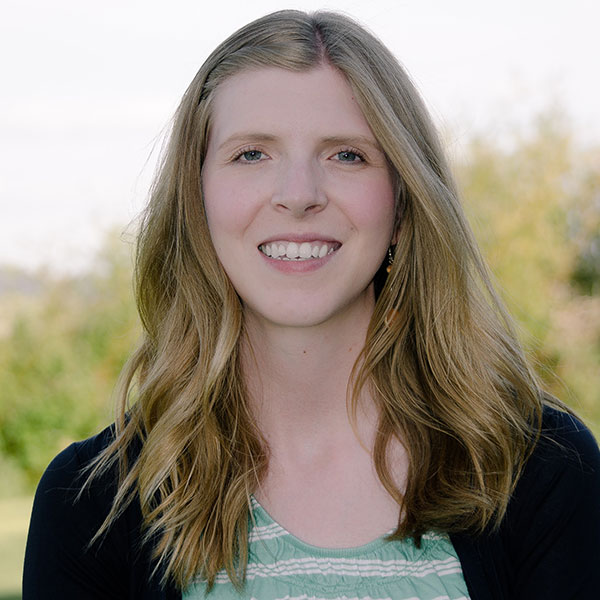Page 28 • (690 results in 0.02 seconds)
-
2022 CNF REU Program Announcement During the summer of 2022, the Cornell NanoScale Science & Technology Facility will host a Research Experiences for Undergraduates (CNF REU) Program from June 7th through August 12th. Engineering and science students with broad interests across disciplines focusing on nanotechnology…
complete list of restrictions and eligibility requirements online). The chosen undergraduates taking part in this ten-week program will receive hands-on nanoscience and technology experience through research, with applications to bio-engineering, chemistry, electronics, materials science, optics, optoelectronics, physics, and the life sciences. CNF REU interns work with their assigned faculty and graduate students on projects using the unique resources offered at CNF and Cornell University
-
The University of Washington has a new Center for the Integration of Modern Optoelectronic Materials on Demand (IMOD). This NSF funded program is offering paid summer REU positions at UW and at a dozen other institutions around the country. The focus is on cutting edge…
advances in optoelectronics, in turn, rely increasingly on advances in the synthesis of highly precise materials and the integration of different materials into functional optoelectronic devices and systems. IMOD is developing new classes of optoelectronic materials, devices, and systems with unprecedented functionality based on solution-processed inorganic materials. Research projects within IMOD labs cover a broad range of disciplines, including chemistry, physics, materials science & engineering
-
Pacific Northwest University of Health Sciences Master of Arts in Medical Sciences Program (PNWU-MAMS) is currently reserving six seats per application cycle year dedicated to highly qualified
Arts in Medical Sciences (MAMS) Prerequisite Courses: English Composition and Literature 6 Semester Hours/9 Quarter Hours General Chemistry 8 Semester Hours/12 Quarter Hours Organic Chemistry 8 Semester Hours/12 Quarter Hours Physics 8 Semester Hours/12 Quarter Hours Biological Sciences 8 Semester Hours/12 Quarter Hours PLU Equivalent Prerequisite Courses: FYEP 101 (FW), 102 (FD) CHEM 115 & 116 MATH 140 is a pre-requisite for CHEM 115 CHEM 331 & 332 (with accompanying labs) PHYS 125 & 126 or 153
-

PLU alumna serves as interim director of Tacoma’s Rainbow Center.
Year and received a Presidential Award for Excellence in Math and Science Teaching. Each year, the Montana Teacher of the Year program recognizes a teacher who exemplifies the best in the teaching profession. It is the highest honor a Montana teacher can receive. Prior to taking a position as a virtual instructional coach, Anderson taught earth science, chemistry and physics at Powell County High School in Deer Lodge, and oceanography online through the Montana Digital Academy. In the classroom
-
Title IX faculty and staff.
Dr. Katrina Hay Professor of Physics Full Profile 253-535-7999 hay@plu.edu
-
The Dynamic Compression Summer School has been established to provide an overview of dynamic compression science appropriate for upper-level undergraduates and first-year graduate students. The four and a half days of activities will introduce students to the scientific fundamentals, contemporary research activities including informal discussions,…
? Dynamic compression experiments subject materials to unique thermodynamic conditions – very large compressions, high temperatures, and large deformations – on short time scales resulting in a rich array of physical and chemical changes. Understanding the material response at these extreme conditions is of central importance to fundamental science and spans the disciplines of Physics, Chemistry, Materials Sciences, Geo/Planetary Sciences, and Solid Mechanics. Research activities related to the dynamic
-
The Mississippi State University Chemistry Department seeks applicants for an interdisciplinary NSF-supported summer Research Experience for Undergraduates (REU) program occurring in 2023. Students who have completed their freshman year of college and who have not yet graduated can participate fully in the Food, Energy and…
/2023 For more information, including details on research project, see information below or contact program director Dr. Deb Mlsna (dmlsna@chemistry.msstate.edu). Read Previous Graduate Studies at the Institute for Shock Physics Read Next Fred Hutch Summer Research Internship LATEST POSTS Dept of Energy Computational Science Graduate Fellowship October 30, 2024 Allen Institute Summer Internship Program October 29, 2024 Summer Research – Army HBCU-MI SPARK October 29, 2024 IMOD Summer Research
-
Program Benefits: The purpose of the Internship Program is to provide realistic and meaningful work experiences to our community members, while providing Pierce County Departments with interns who bring fresh perspectives and assistance to complete special projects. Interns also have the opportunity to participate in…
Previous Applied-Physics REU at the University of South Florida Read Next Knight Campus Graduate Internship Program LATEST POSTS Dept of Energy Computational Science Graduate Fellowship October 30, 2024 Allen Institute Summer Internship Program October 29, 2024 Summer Research – Army HBCU-MI SPARK October 29, 2024 IMOD Summer Research Opportunity for Undergrads October 17, 2024
-
Eager to expand your research and establish productive collaborations with renowned scientists at a Department of Energy (DOE) National Laboratory? This is your opportunity! Through SRP, faculty and students contribute to multi- and inter-disciplinary research that is changing the world. Berkeley Lab staff are looking…
problems that intersect with your research interests. We encourage you to view the current projects shared by participating lab staff to get an idea of ongoing research projects. New this year: Quantum Information Science and Technology (QuIST) group is joining SRP and eager to connect with faculty and students interested in building the next generation of quantum processing hardware. Anyone who loves physics, computer science, electrical engineering, and/or device engineering should check out this
-
By William Giddings, Professor Emeritus September 1995
three until Anderson’s retirement in 1991. Growth continued in 1964 when Dr. Wayne Gildseth came to the department. When Gildseth left and Anderson became Dean of the College of Arts and Sciences in 1966, Dr. Frederick Tobiason and Dr. Donald Lee came; Lee left after one year and Dr. Burton Nesset replaced him. Further expansion was facilitated greatly through a major grant from the Research Corporation administered by Dean Anderson and co-authored by Dr. Sherman Nornes of the physics department
Do you have any feedback for us? If so, feel free to use our Feedback Form.


